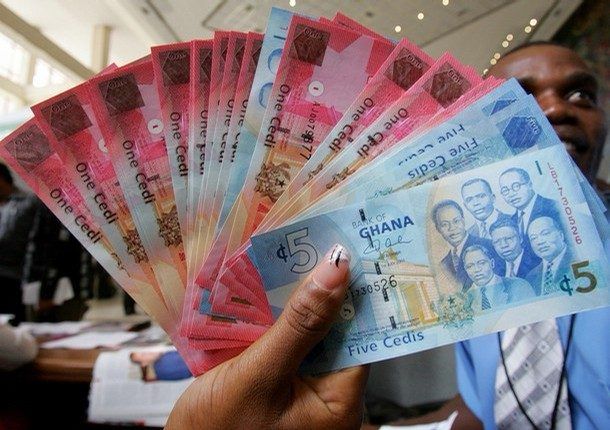The Ghanaian cedi has experienced a significant surge in value against major foreign currencies, most notably the US dollar, reaching its strongest point since December 2023. As of May 22, 2025, the interbank market witnessed the cedi trading at GHS11.84 to the dollar for buying and GHS11.86 for selling. This marked a substantial appreciation compared to earlier periods in 2025 and late 2024, where the cedi faced considerable pressure. The retail market also mirrored this positive trend, with the cedi trading at a buying rate of GHS11.75 and a selling rate of GHS12.40 per dollar. This strengthening of the cedi has brought renewed optimism to the Ghanaian economy, signaling potential positive implications for import prices and inflation.
The resurgence of the cedi has sparked a debate about the factors driving its appreciation. The opposition New Patriotic Party (NPP), led by its 2024 flagbearer, Dr. Mahamudu Bawumia, contests the claim that the ruling National Democratic Congress (NDC) government is responsible for the cedi’s gains. Dr. Bawumia attributes the strengthening of the cedi to external factors, specifically global trade dynamics that have weakened the US dollar, and to policies implemented by the previous NPP administration, including the gold-for-oil initiative. This initiative, which aimed to use gold reserves to purchase oil, was touted by the NPP as a measure to reduce pressure on the cedi and stabilize fuel prices.
Contrasting this perspective, Sammy Gyamfi, Chief Executive Officer of the Ghana Gold Board, argues that the cedi’s appreciation is not primarily due to the accumulation of gold reserves or the gold-for-oil program. Instead, he points to increased foreign exchange liquidity as the key driver. This increased liquidity, according to Mr. Gyamfi, stems from record gold exports facilitated by the Gold Board, a tight monetary policy implemented by the Bank of Ghana, and the fiscal discipline maintained by the Ministry of Finance under the leadership of Ato Forson. This combination of factors, he asserts, has created a more favorable environment for the cedi, leading to its significant appreciation.
The Bank of Ghana’s tight monetary policy, characterized by higher interest rates, plays a crucial role in attracting foreign investment and bolstering the cedi’s value. By increasing the returns on cedi-denominated assets, the policy incentivizes foreign investors to hold cedi-denominated securities, thereby increasing demand for the currency and contributing to its appreciation. This tighter monetary policy also helps to curb inflation by managing the money supply and reducing consumer spending. Concurrently, the Ministry of Finance’s focus on fiscal discipline, through measures such as controlled government spending and improved revenue collection, enhances investor confidence in the Ghanaian economy, further supporting the cedi’s upward trajectory.
The record gold exports overseen by the Ghana Gold Board contribute significantly to the inflow of foreign exchange, creating a more liquid forex market and bolstering the cedi’s value. As Ghana’s primary export commodity, gold generates substantial foreign currency earnings. The increased export volumes translate to a greater supply of foreign currencies, particularly the US dollar, in the Ghanaian market, providing stronger support for the cedi. This increased liquidity strengthens the cedi’s resilience against external shocks and contributes to its overall stability.
The contrasting viewpoints on the cedi’s appreciation highlight the complexities of economic policy and the interplay of various factors. While the NPP emphasizes the influence of external factors and past policies, the NDC-led government highlights internal policy measures as the primary drivers. The role of global trade dynamics in weakening the dollar cannot be discounted, while the impact of the gold-for-oil initiative remains a point of contention. Ultimately, the cedi’s strengthening appears to be a result of a confluence of factors, both internal and external, with ongoing debate about the relative importance of each. The increased forex liquidity from gold exports, coupled with the Bank of Ghana’s monetary policy and the Ministry of Finance’s fiscal discipline, likely plays a significant role in this positive development.














